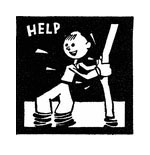
The Black Hole of American Morality
ON FALLING INTO THE ABYSS
The increasing blindness to true human dignity expresses itself, for example, in the way even the most horrible sexual perversions (such as sodomy) are shown in movies and even recommended by some psychiatrists. Such aberrations have always existed, but their abominable anti-moral, anti-human character was clearly recognized. The growing acceptance of them is a last notch of dehumanization and depersonalization and, at least in the Christian era, was never to be found before. — Dietrich von Hildebrand
Nietzsche saw it coming. “If you stare long enough into the abyss, the abyss will stare back into you.” But aren’t these the words of a man slowly going insane? Since Nietzsche’s day, we have peered more deeply than ever into a moral abyss, and there are reasons to believe that the abyss is staring back and slowly pulling us into itself. We do not see in the abyss what Nietzsche saw: the sublime Superman into which Man was destined to evolve. Rather, we see now more than ever the highly evolved Underman: the creature who, with an approving nod from the state, may kill his own unborn child, who may openly and freely mock the sane disgust for sodomy, and who, by various devices of the courts, may rout from all corners of the nation every trace of a ruling God. This, any survivors of the old order have a right to suspect, is not going to end well.
The muscular Christianity that American politicians once respected and feared apparently no longer exists. The churches have failed to show any effective opposition to the stampede toward moral relativism that seems to be overtaking the courts, the legislatures, and the executive branch of government.
Today there are six Catholics on the Supreme Court (why there are six is a puzzle in itself). But we are not apprised of the slightest movement toward referring Roe v. Wade, same-sex marriage, or any other of the critical moral issues of our time to the supreme deliberations of that august body. Catholicism in America, some fear, is moving precariously toward the position of the Catholic Church in Nazi Germany, putting up at best a feeble opposition that future historians (surely those who count themselves enemies of religion) are likely to cite with self-righteous contempt.
Nor is the matter helped by the clerical sex scandals of recent years, reminiscent of the Nazi indictments of German Catholic priests for sex crimes in the 1930s. The moral authority of the Catholic bishops today is truly suspect insofar as non-Catholics, and even some Catholics, are concerned. The infighting among Catholic theologians about what is and is not Catholic teaching, not to mention the false and disgraceful public statements about Catholic teaching by prominent yet ill-formed Catholic politicians, leaves serious doubt about how unified and effective the Church can ever be as an army that knows its enemy and knows how to fight without being divided and conquered.
You May Also Enjoy
With the welfare/warfare state, one may wonder: which came first? They are both features of empires, especially in the latter stages of an empire’s lifecycle.
Modern-day American "anti-colonialism" is composed mostly of neo-Marxism mixed with a smidgen of post-Victorian disillusionment.
Childhood mortality was significantly greater even just such a short time ago that we can go and see with our own eyes the evidence in our cemeteries.

